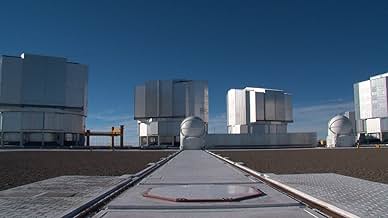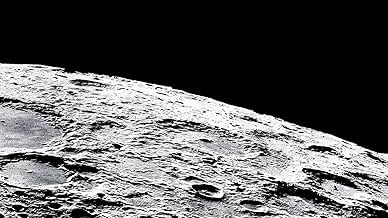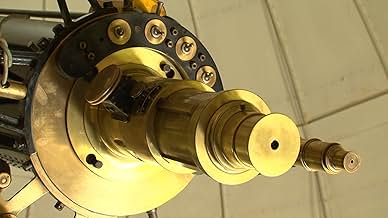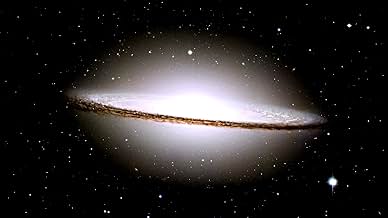A documentary about two different searches conducted in the Chilean Atacama Desert: one by astronomers looking for answers about the history of the cosmos, and one by women looking for the r... Read allA documentary about two different searches conducted in the Chilean Atacama Desert: one by astronomers looking for answers about the history of the cosmos, and one by women looking for the remains of loved ones killed by Pinochet's regime.A documentary about two different searches conducted in the Chilean Atacama Desert: one by astronomers looking for answers about the history of the cosmos, and one by women looking for the remains of loved ones killed by Pinochet's regime.
- Awards
- 13 wins & 20 nominations total
- Director
- Writer
- All cast & crew
- Production, box office & more at IMDbPro
Featured reviews
The brutal results of Pinochet's military dictatorship are meshed with the search for the origins of the universe. Both subjects deal with the past, as we only have past and future; there is no present as Augustine said many years ago.
So, astronomers are really archaeologists. They study space to discover the past. Writer/director Patricio Guzmán combines this "archaeology" with the archaeologists who search the desert for the bodies buried by Pinochet.
A fascinating story.
What I found was that this isn't really a documentary in the traditional sense; yes it is real life and fact based, but we don't have a specific subject revealed or examined in the way you would expect from a historical documentary. Instead what we get is more of a musing or mediation that plays like a combination of documentary, poetry, art and science (non) fiction. This sounds pretentious but it really isn't and the way it is presented means that discussions about how there is no actual "present" and that our atoms come from the stars sit comfortably next to discussions with a woman whose parents were disappeared when she was 1 year old and a 70 year old who goes daily into the desert endlessly searching for bones of those dumped there decades prior. All of it works and is equally engaging and, more importantly, compliments each other in a way I didn't expect.
Content-wise the film has a real peaceful beauty to it while also looking at terrible situations with a lot of pain and loss. It is fitting that the film is also visually beautiful. The use of shots of galaxies spinning through the clear sky over the desert is a real help to this, but even smaller moments of a woman picking through dirt are really well shot and do not contrast with the shots of space. The visuals add to the content really well and I was surprised by how engaged I was; it wasn't that it informed me about a lot (although it did a bit) but more that it invited me to think with it, to muse with it and I really enjoyed that sensation.
As an idea it really shouldn't work at all and experience tells me it should have come out as a pretentious piece of soul searching like an art student did it, but it is nothing of the sort. It is beautiful, engaging, thought-provoking and really well filmed and constructed. Go with it – it is very good.
The images of a body with legs still chained and wrists bound, people digging in the desert for remains of their loved ones, a country that does not acknowledge the recent past, the testimony of a woman who lost her parents and drawings from the Chacabuco concentration camp merge with images of galaxies and supernovas, and talk of a current of energy, new life, pulsing through our existence. It is powerful stuff. Transitions and better organization are all that are wanting with this film.
We are firstly greeted with an array of huge vistas of space, images taken from the various telescopes trained on the universe. They are glorious to look at and so huge in scale they make you feel insignificant. As the film progresses we are introduced to a new story, that of The Disappeared, the thousands of people who went missing during the years of Chile's Pinochet regime in the 70's. We meet relatives who still hope that the remains of their loved ones will be found, so they can finally be laid to rest. Pinochet had a series of concentration camps in the Atacama desert, once they were salt mines. Prisoners were killed and their remains scattered through the desert. How many, or exactly where, is something unknown. For decades, relatives have come to the desert and spent countless days digging and searching for remains, body parts, fragments of bones. Occasionally remains are found, a closure for somebody somewhere.
The relatives we meet are full hope that they will find the remains of the loved one missing for over 30yrs. They long to have that knowledge, that piece of mind and that's why they return. It is devastating to hear these people, all women, talk. They talk of the hope they have at the start of each day and the despair that takes over after a fruitless day. They talk of being able to die at peace if they find their loved one. The idea that in modern times such atrocities were committed and that even today such little is known is so disturbing, showing the true horrors that humanity can commit. Yet through this horror, there is hope, small groups of people continue the fight to find loved ones and recover the truth.
The film draws on the parrallel that these two groups, the relatives and the star gazers lead simliar lives. They are both searching, searching for truth, for understanding. Both are working in the past, in that images from space are from the past, with light reaching us after something has happened, the relatives relive the past everyday hoping for some revelation. Somehow, despite the very obvious differences there is connection. Much of the connection and the film itself comes from the idea of space and scale. Footage of the Atacama shows it's immensity, small dots of humans work their way across tiny areas of a seemingly endless expanse. Mountains rise up, a toy like train crawls across the land. Even the telescopes are immense, the buildings they stand in, the mechanisms that run them are simply huge. The images, so huge and almost overwhelming fill the screen, just as the huge task that those searching for remains, searching for truth, fills the heart.
It is a beautifully made film, that is at once both fascinating and immensely sad, but offers hope that perhaps we live in a better time and that people are have been able to help keep the past alive.
More reviews at my site iheartfilms.weebly.com
Until I watched it, I honestly didn't know that the best place in the whole world to search for light from the universe, also possesses the remaining of a mass tragedy that Chile went through. The movie brought these two things coherently, and it has this incredible comparison between a two distinct opposites, the beauty of the universe, and the ugliness of ourselves.
Somewhere in the movie one has to ask himself many questions. In a universe this vast with endless dots spreading all over its unbelievably ample space, with each dot as a whole star, smaller, similar or larger than the Sun; why do teeny tiny humans on Earth act so blindly to each others?! What is the purpose of knowing what's up there a million light years away while we still can't understand or deal with what's just beneath our noses? How come we were able to develop such powerful telescopes to look deep into outer space but not being able to develop a clearer insight to our own kind? And, how absurd it is to seek political power at any cost.
This beautiful movie provokes such questions and more, using the hardest way imaginable. Beautiful, but sad documentary.
Did you know
- TriviaIncluded among the "1001 Movies You Must See Before You Die", edited by Steven Schneider.
- Quotes
[last lines]
[in Spanish, using English subtitles]
Gaspar Galaz - Astronomer: [voiceover] I am convinced that memory has a gravitational force. It is constantly attracting us. Those who have a memory are able to live in the fragile present moment. Those who have none don't live anywhere. Each night, slowly, impassively, the centre of the galaxy passes over Santiago.
- ConnectionsEdited into P.O.V.: Nostalgia for the Light (2012)
- How long is Nostalgia for the Light?Powered by Alexa
Details
- Release date
- Countries of origin
- Official site
- Languages
- Also known as
- Nostalgia for the Light
- Filming locations
- Production companies
- See more company credits at IMDbPro
Box office
- Gross US & Canada
- $163,962
- Opening weekend US & Canada
- $5,664
- Jan 16, 2011
- Gross worldwide
- $410,903
- Runtime1 hour 30 minutes
- Color
- Sound mix
- Aspect ratio
- 1.85 : 1
Contribute to this page




















